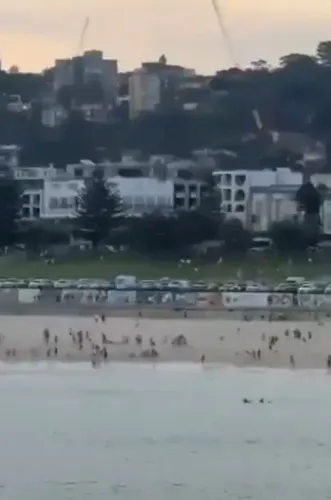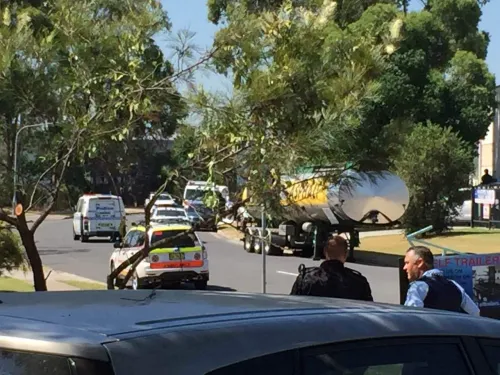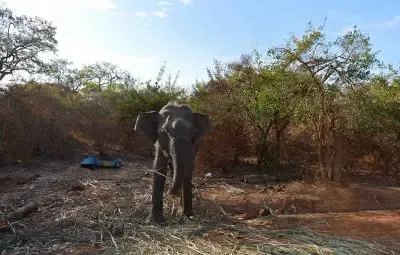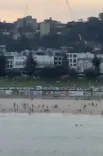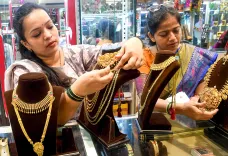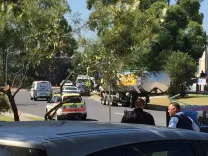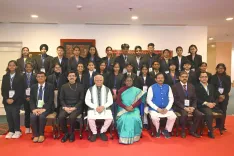South Korea: People Power Party to Narrow Down Four Presidential Candidates
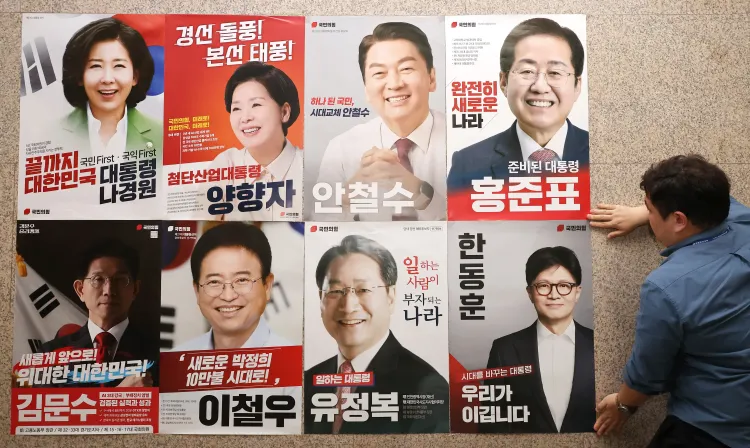
Synopsis
Key Takeaways
- The PPP is set to shortlist four candidates for the June presidential election.
- Public polling will heavily influence candidate selection.
- Lee Jae-myung leads the polls with 50.2% support.
- The election will take place on June 3.
- Candidates must register by May 11.
Seoul, April 22 (NationPress) The People Power Party (PPP) of South Korea is preparing to select four candidates on Tuesday for the upcoming presidential election in June, marking the initial phase of its primary procedure based on public surveys.
The results will be based on polls conducted by five different agencies from Monday to Tuesday, involving a total of 4,000 participants. The party's election commission is expected to reveal the leading four candidates by around 7 p.m.
In the subsequent round, two candidates will be chosen through a method that balances votes from party members with those from public opinion surveys. The definitive candidate will be announced on May 3.
A recent poll from Realmetre indicated that Rep. Lee Jae-myung, the former head of the Democratic Party (DP), maintains a significant lead with 50.2 percent support.
Following Lee is former Labour Minister Kim Moon-soo, who has joined the PPP, with 12.2 percent. Former PPP leader Han Dong-hoon received 8.5 percent, while former Daegu Mayor Hong Joon-pyo achieved 7.5 percent, and PPP Rep. Na Kyung-won garnered 2 percent, according to the survey.
The election is scheduled for June 3, succeeding the removal of former President Yoon Suk Yeol on April 4 due to his unsuccessful martial law attempt.
Despite the conservative candidates intensifying their political attacks against the prominent DP leader Lee, the PPP appears to be confused by Lee's robust lead in public opinion polls.
Last week, plans to establish a new political party in support of Yoon were postponed.
PPP Rep. Lee Yang-soo mentioned on SBS radio that such a plan would adversely affect the party ahead of the presidential election, as reported by Yonhap news agency.
Additionally, candidates must register by May 11, with the official campaign period commencing on May 12.
The law mandates that any public servant running for the presidency must resign at least 30 days prior to the election, setting May 4 as the cutoff.
The new President will take office immediately after the election without the formation of a transition team.
When former President Park Geun-hye was ousted on March 10, 2017, the subsequent early election occurred precisely 60 days later, on May 9.
Moreover, Yoon, who ascended from a top prosecutor to the presidency in a span of about three years, became the second President in the nation to be formally removed from office, following his unexpected martial law proposal that unsettled the country for months and heightened political divisions.
With this ruling, Yoon, aged 64, follows the path of former President Park Geun-hye, who was removed in 2017 after the Constitutional Court upheld her impeachment regarding a corruption scandal.


